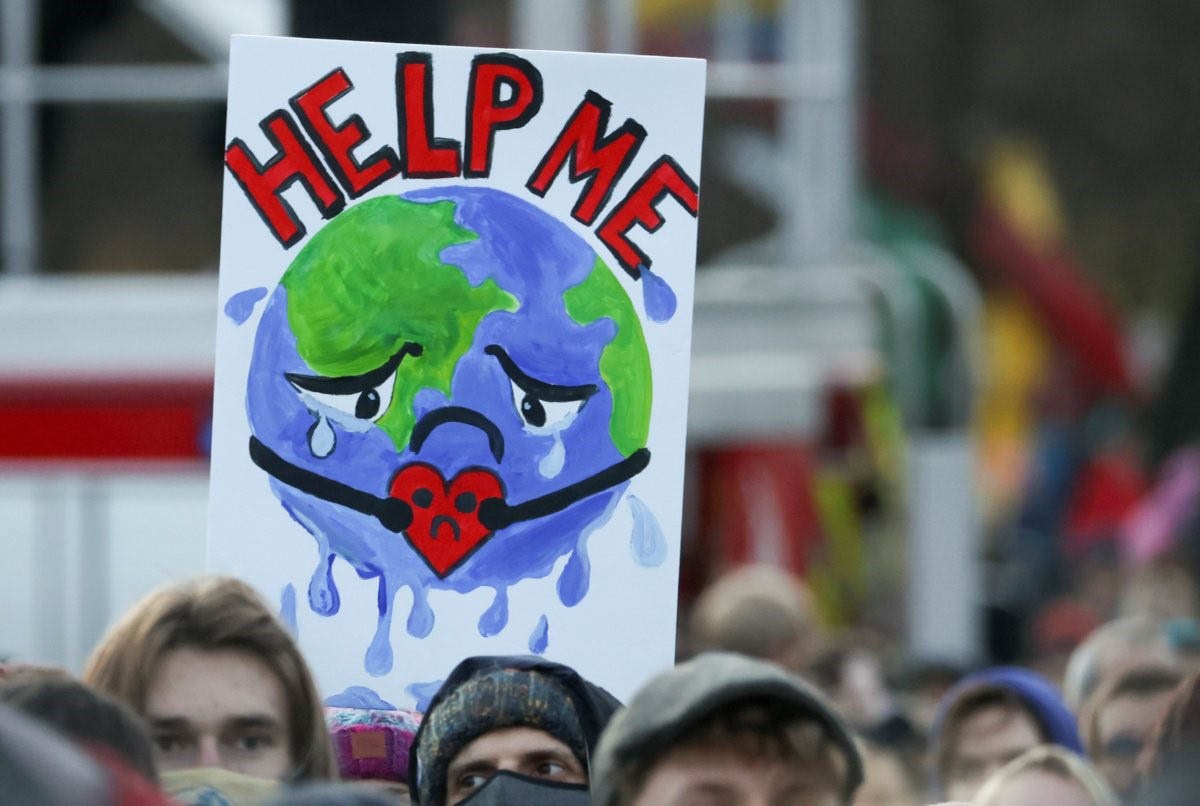(Reuters) – Climate change is already disrupting billions of lives and humanity is not doing enough to limit the suffering, the United Nations climate science panel warned in a major report yesterday.
Noting that nearly half the world’s population was already vulnerable to increasingly dangerous climate impacts, the report calls for drastic action on a huge scale: A third to a half of the planet needs to be conserved to ensure future food and freshwater supplies. Coastal cities need plans to keep people safe from storms and rising seas. And more.
“Adaptation saves lives,” U.N. Secretary-General Antonio Guterres said with the report’s release. “As climate impacts worsen – and they will – scaling up investments will be essential for survival… Delay means death.”
The 3,675-page report, the latest in a series by the Intergovernmental Panel on Climate Change (IPCC), details the global consensus on climate science. This report, however, focuses on how nature and societies are being affected and what they can do to adapt.
Russia’s invasion of Ukraine overshadowed the release of the report and drove the sole Ukrainian author to leave the proceedings to take shelter, although a government representative did attend its final approval by nearly 200 nations.
British, Spanish and Egyptian officials said the report was a call to action. U.S. Climate Envoy John Kerry lamented that too little has been done to adapt to climate change and said the report offered a “blueprint for action”.
“Denial and delay are not strategies, they are a recipe for disaster,” Kerry said in a statement.
On nearly all counts, the report makes clear that climate change is impacting the world far faster than scientists had anticipated. Meanwhile, countries have failed to rein in planet-warming carbon emissions, which continue to rise.
“Unchecked carbon pollution is forcing the world’s most vulnerable on a frogmarch to destruction,” Guterres said in a video address Monday. “The facts are undeniable. This abdication of leadership is criminal.”
While governments need to drastically curb their emissions to prevent runaway global warming, they can also work to limit suffering by adapting to the conditions of a warmer world, the report says.
That will take a lot of money – to finance new technologies and institutional support. Cities can invest in cooling areas to help people through heatwaves. Coastal communities may need new infrastructure or to relocate altogether.
“The scale of transformation that we need is unprecedented in human history,” said Zinta Zommers, a report review editor with the U.N. Office for the Coordination of Humanitarian Affairs.
U.S. and European investment firms said the report was a wake up call to the huge risks climate change presents to the financial system and that most companies are not doing enough to adapt.
The report predicts disruptions to economies and food production will push millions into poverty. In some cases, the report acknowledges, the costs of adapting will be too high.
The report’s release three months after global leaders met at a climate summit in Glasgow, Scotland, highlighted the urgency of efforts to contain global warming to within 1.5 degrees Celsius (2.7 degrees Fahrenheit) of pre-industrial temperatures.
Breaching that threshold will deliver irreversible damage to the planet, it says. And every increment of warming will cause more pain.
“Adaptation is not a get-out-of-jail-free card. There are limits to adaptation,” said Maarten van Aalst, director of the Red Cross Red Crescent Climate Centre and a report co-author.
Limiting global warming to close to 1.5C may not prevent losses to nature, societies or economies, but will substantially reduce them, the report says.
Having already warmed 1.1C, the planet is expected to hit the 1.5C threshold within two decades.
“Our atmosphere today is on steroids, doped by fossil fuels. This is already leading to stronger, longer and more frequent extreme weather events,” said Petteri Taalas, secretary-general of the World Meteorological Organization.
Societies will fail to adjust well to a warming world if they aren’t socially inclusive in tackling the task, the report warns. Solutions need to consider social justice and include indigenous populations, minorities and the poor, it says.
“It’s the poor and most marginalized who are most vulnerable” to climate change, said Timon McPhearson, an urban ecologist at The New School in New York and one of the report’s 270 authors.
Losses and damage from climate-related events, such as storms or heatwaves, are already mounting.
In the decade up to 2020, highly vulnerable people in places such as Africa, South Asia and South America were 15 times more likely to die from floods, droughts or storms, the report said.
Hundreds of plant and animal species have disappeared at a local level, and some altogether from the planet. Australia’s Bramble Cay melomys rodent, for example, was driven to extinction by sea level rise, noted said IPCC co-author Brendan Mackey of Australia’s Griffith University. And marine heatwaves are killing off swathes of the Great Barrier Reef.
For people, time is running out to make the society-wide transformations needed, the report authors warn.
“There is a brief and rapidly closing window to secure a liveable future on the planet,” said Hans-Otto Portner, co-chair of the IPCC working group that generated the report. “We need to live up to this challenge.”










